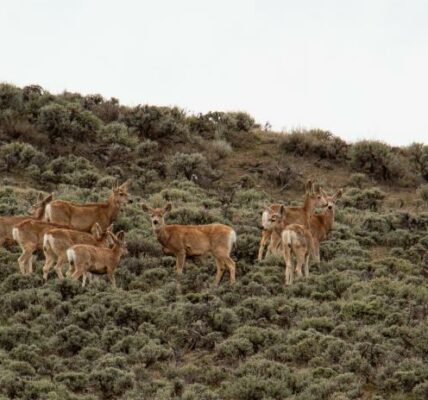By Carrie Haderlie
Wyoming Tribune Eagle
Via- Wyoming News Exchange
CHEYENNE — Hours before the end of the session, and days after a failed first round of negotiation, the Wyoming Legislature passed a budget for the 2025-26 biennium early Friday afternoon.
Just the night before, Gov. Mark Gordon sent a letter to legislative leaders expressing his frustration with delayed negotiations. In his letter, he reminded members of the 67th Legislature their one obligation during the session was to pass a budget.
Budget debates in the Senate continued after their counterparts in the House managed to pass the budget that morning with a vote of 41-21. An abrupt end to Senate debate early Friday afternoon, motioned by Sen. Troy McKeown, R-Gillette, enacted an immediate vote down the hall, where senators passed the budget on a vote of 17-14.
What the budget does
The approved biennium budget, as written, provides funding for nursing homes, preschool for developmentally disabled children and Wyoming home services for senior centers, according to a news release from legislative leaders. It invests in mental health services, funds energy projects, and “importantly,” more than $300 million to construct K-12 public schools. An additional $253 million allocated by the Legislature will reduce property tax cuts and include refunds.
“Our primary job in the budget session is to pass a constitutional budget,” said House Speaker Albert Sommers, R-Pinedale, in the news release. “I am proud of the work we did. This budget takes the long view, ensuring we meet community and state priorities while delivering on conservative, sound fiscal policy. That includes investments in suicide prevention, increased support of law enforcement families, property tax relief and funding for schools. It’s a budget our children and grandchildren will benefit from in the years ahead.”
Senate President Ogden Driskill, R-Devils Tower, said in the release the budget was “a hard-fought compromise.”
“We want Wyoming to continue to be a place where families live, work and thrive,” Driskill said. “We want Wyoming to be a place where our freedoms are valued above all else. You will see these priorities fought for and delivered on in this budget.”
A budget amendment that was adopted in the House and passed in the Legislature gives Wyoming a leg up in negotiation with the Bureau of Land Management’s (BLM) Resource Management Plan (RMP). The provision, introduced by Rep. Clark Stith, R-Rock Springs, only allows the sale of the Kelly parcel of the RMP “does not include certain elements in the federal agency’s preferred option, alternative B.”
“In tying the sale of the Kelly Parcel to Bureau of Land Management actions, we are telling the federal government that it needs a balanced approach to managing federal lands,” Stith said in the release. “If they want us to play nice with them in northwest Wyoming, they need to play nice with us in southwest Wyoming.”
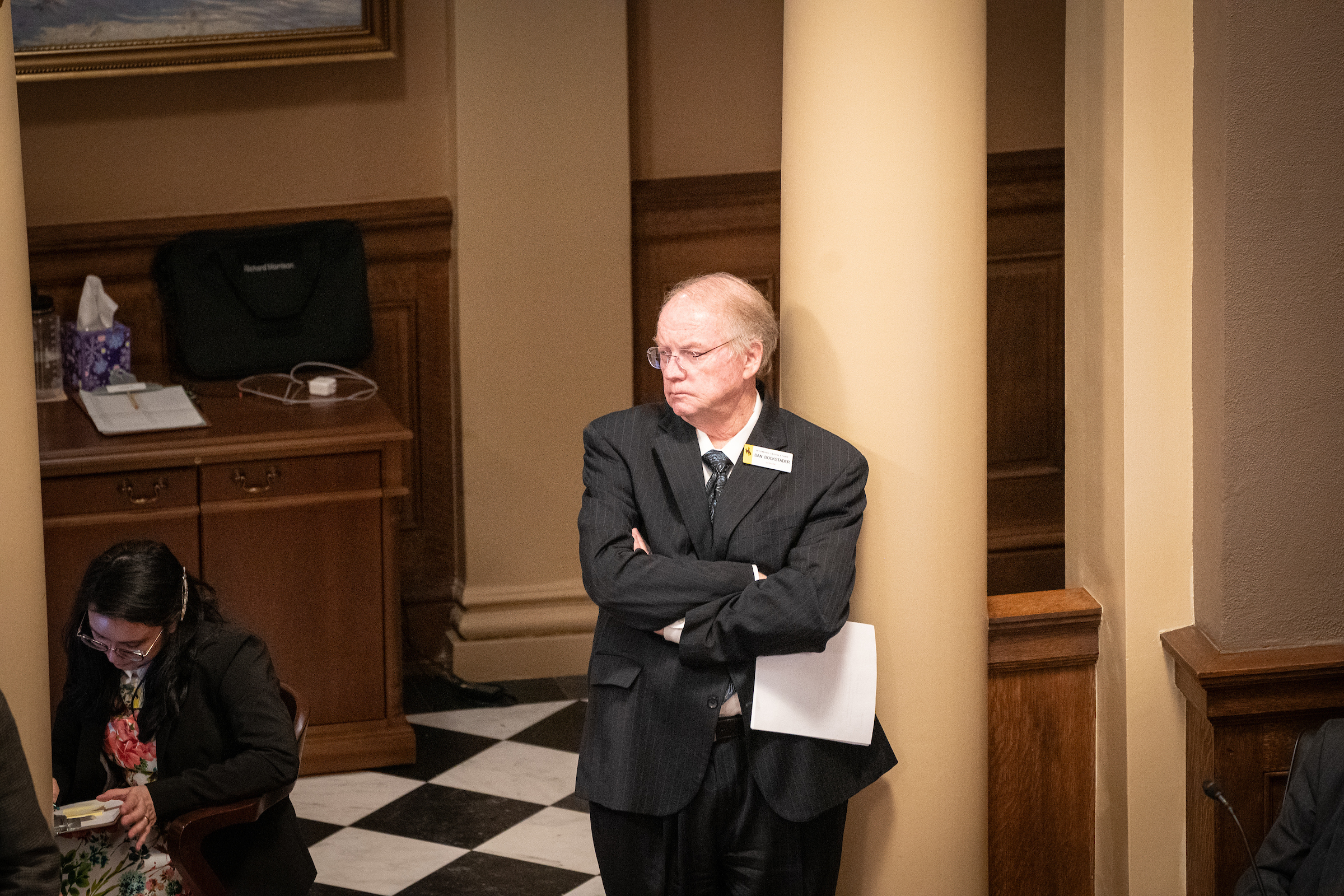
Defending the budget in the Senate
Senate JCC members walked into the second round of budget negotiations Tuesday morning with a single mindset — to reflect the fiscally conservative will of the body. Budget negotiations resumed in a second joint conference committee after House members of the first JCC declared a budget stalemate the previous night.
The budget was further cut down when the second JCC held another meeting Thursday, the day before each chamber was scheduled to vote.
However, after Sen. Tara Nethercott, R-Cheyenne, presented the final budget report to the floor Friday, other senators immediately retorted that the budget negated a majority, if not all, of the Senate’s positions.
Nethercott told fellow senators the budget report reduced approximately $300 million in spending from the governor’s proposed budget — this was $100 million less than what the Legislature’s Joint Appropriations Committee proposed in its base budget. Primary actions taken in the second joint conference committee, Nethercott said, were to go back to the JAC budget and take considerations from the House and Senate positions during the session.
“It is fair, it is balanced, it is reasonable,” Nethercott said. “I hope you’re proud of the work we’ve done.”
Senate Majority Floor Leader Sen. Larry Hicks, R-Baggs, argued that the ultimate budget bill was far from what the Senate took to the first joint conference committee: It represented 70% what the JAC budget was and only 30% what the Senate voted on Feb. 22.
Sen. Lynn Hutchings, R-Cheyenne, said the final budget “ripped out” the Senate’s position “like it never happened.” Hutchings added that the Senate “overwhelmingly said no” to funding the state museum and arboretum, but those were now put back in the budget.
It should be noted, though, that funding for both of these items was reduced in the final budget report — the $5 million allocation for the Cheyenne arboretum was reduced to $3.5 million, and the $10 million allocation for the state museum was reduced to $5 million.
Sen. Bo Biteman, R-Ranchester, said the $150 million allocation to Rock Springs High in Sweetwater County “is what pivots this whole budget conversation.”
“What was this total Senate budget when it left this body?” Biteman said. “What are we giving up to get that earmark?”
Nethercott said the $150 million for the high school was taken out of the $200 million that was initially appropriated toward the large school savings account, which the Senate deleted in its version of the budget. Members of the second JCC decided to take $150 million out of that appropriation, she said, and put it toward Rock Springs High.
“There’s no mischief here,” Nethercott said. “It is appropriate to have it there.”
Sen. Mike Gierau, D-Jackson, told lawmakers that the original JAC budget was already aimed to reflect the will of the Senate. For the last three biennium, there has been a “historic rift” between the House and Senate, Gierau said. This was the first year the JAC leaned more toward the Senate position.
“We thought we’d already worked out half of what the Senate was asking for before we started,” Gierau said.
Further cuts made in the second JCC’s Thursday meeting included a $5 million reduction for K-12 mental health grants, a $50 million reduction in match large energy project funds and reducing the already cut $20 million into the 988 suicide hotline trust fund to $10 million.
“There’s a lot of ways you can look at these numbers,” Gierau said. “But the bottom line is we tried, especially the second committee, we tried our best to adhere to your request on this.”
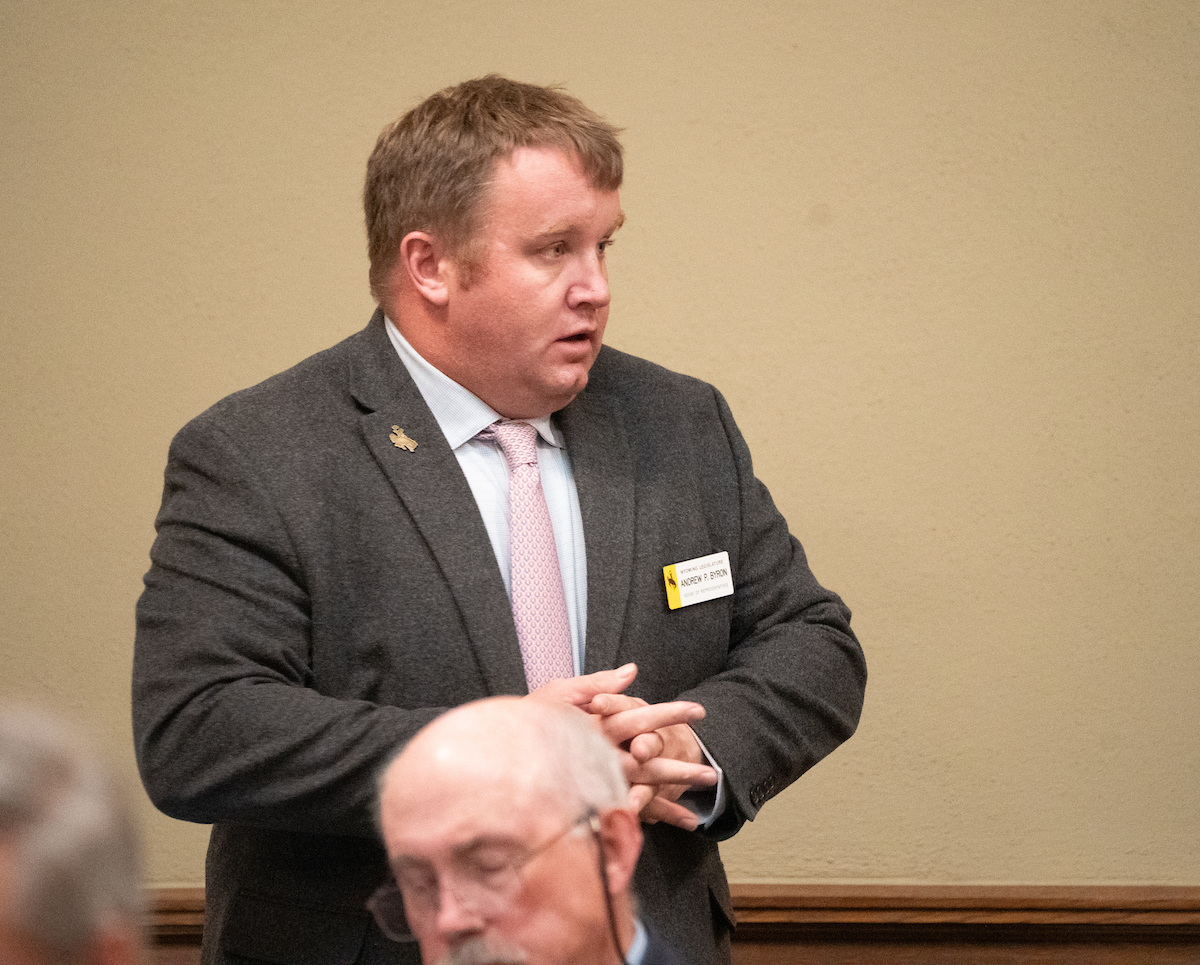
Budget debate in the House
Rep. Tony Locke, R-Casper, who voted against the budget in the House, said that lawmakers failed to give enough relief to citizens through a slate of property tax bills, adding that when the state adds to its own savings, that money does not go to Wyoming citizens.
“We didn’t put enough back into the people’s pockets as far as property tax,” Locke said. “When we put money into (state) savings, we miss opportunities to put money back into people’s pockets.”
Friday morning, Rep. John Winter, R-Thermopolis, argued that any anger at the state over the budgeting process is misplaced and should be directed elsewhere: the federal government.
“The way they spend, they bring in $5 trillion, but spend $7, $8, $9 trillion, whatever they feel like,” Winters said, “Well, we pay cash for everything and we save like no other state. Like nothing any other state has ever seen.”
Winter voted for the budget, adding that the House “gave the Senate an awful lot” to ensure lawmakers “didn’t have to go home and tell the people we didn’t finish the big job.”
Rep. Karlee Provenza, D-Laramie, said it is the state’s budget that gives people their money back. In fact, she said, a family of four in Wyoming receives $56,834 in local government services that “they do not have to pay for.”
“That funding comes from minerals and investments,” Provenza said. “When we provide a budget, we are giving people their money back through the services that they receive.”
Rep. Mark Jennings, R-Sheridan, said that Provenza’s argument simply represented a difference in philosophy.
“There is another train of thought that says less government equals more freedom,” Jennings said before voting no on the budget.
Rep. Mike Yin, D-Jackson, said he was disappointed with the many things the House had to “let go” to generate votes in the Senate, including matching tourism funds and energy dollars.
“I am disappointed that our colleagues down the hall could not help us out,” Yin said.
Joint Appropriations Chairman Rep. Bob Nicholas, R-Cheyenne, participated in the interim committee process and sat on both joint conference committees during the budgeting process.
“What we did was we cut and we cut and we cut … and it wasn’t easy,” Nicholas said. “I think that we have been fiscally conservative, and we are trying to do the best for Wyoming.”
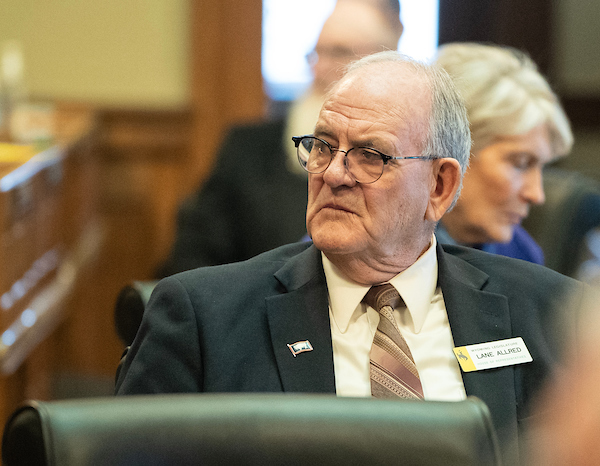
Budget presentation in the House
Rep. Lloyd Larsen, R-Lander, presented the second joint conference committee’s budget to the House on Friday morning. He said that the process is not one appropriators intend to be “engulfed in fog.” A second joint conference committee met this week, he explained, and used the initial Joint Appropriations Committee budget as a “baseline document for the conversation.” Additional amendments then came from both the Senate and House.
In the House, Larsen told the representatives the two chambers split the difference nearly “50/50,” during the second JCC based on amendments brought to the table at that time.
“That is historically what the conference committees have tried to do, to try to find middle ground between the House and Senate positions,” he said. “Both sides had to compromise.”
The state’s general fund allocation in the last biennium was $3.7 billion. The House spending was $4 billion going into the second JCC, and the Senate’s position was $3.6 billion, Larsen said. The budget on the floor Friday, he said, included a general fund allocation of about $3.8 billion.
In the state’s biennium budget last time around, there was an authorized anticipated cost of $10.3 billion. This year, that number was $11.5 billion, Larsen said.
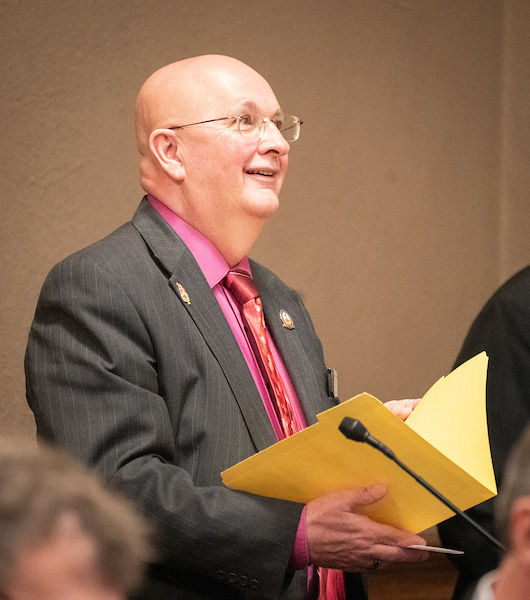
Hot-button budget amendments between chambers
All funding for school capital construction remained in the budget, but other things were removed.
“We were advised in the conference committee that many (House positions) have value, but really should have come as policy in a bill,” Larsen told fellow representatives on the floor.
When it came to the University of Wyoming, an amendment to create a budgeting process for the school was eliminated, a provision to delete funding for the school’s Gender Studies program was removed, but a Senate amendment that removed funding for the Office of Diversity, Equity, and Inclusion remained in place.
“We adopted that. That was a strong conversation in the Senate. We deliberated in consultation with the university, and we adopted (that amendment),” Larsen said.
When it comes to budget oversight, Nicholas said the university “probably has the most transparent budget in the state” already.
Now that the budget has passed both chambers, it will head to the governor’s desk. Gov. Mark Gordon may use line-item vetoes in the budget where he sees fit.





